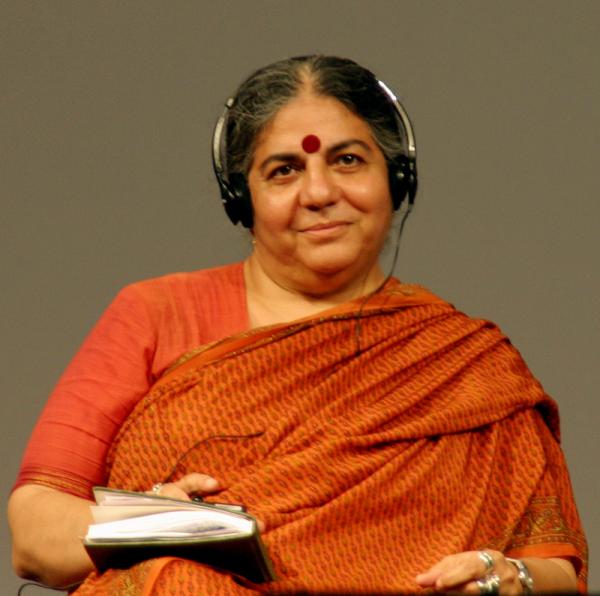Once a cultural and political force to be reckoned with, the anti-GMO movement has lost control of the crop biotechnology narrative. Countries around the world continue to abandon their opposition to genetically engineered (GE) crops, including the UK, previously an activist stronghold as part of the EU. High-profile environmental groups like the Union of Concerned Scientists and the Sierra Club have endorsed select GE applications, namely the plant-based Impossible Burger and a blight-resistant chestnut tree. In fact, much of the anti-GMO movement has migrated to developing countries, hoping to achieve more success than they've had in the US.
While this is an encouraging trend, several influential public institutions are helping to keep this misguided activism on life support with your tax dollars. Any number of examples would suffice, but here I'm thinking of universities that pay activists lots of money to lecture students about the supposed dangers of biotechnology.
No school should ever endorse demonstrably false ideas, but it's a particularly egregious offense during a pandemic when the federal government argues that misinformation is "an imminent and insidious threat to our nation's health."
The college speaking circuit
The latest example comes from a September 27 AgriPulse report:
The University of Missouri at Kansas City (UMKC) has invited Vandana Shiva to speak on October 7th. According to a speaker booking website, her asking price for a lecture is a cool 100k. Let’s give UMKC the benefit of the doubt, and assume they got a deal. It is hard to imagine a price for this world famous charlatan that gives good value.
Shiva's speaking fees appear to range from $40,000 to $100,000 per lecture plus travel expenses. If you're not familiar with her work, here's a brief rundown that suggests UMKC could make better use of its resources. [1]
Sometimes called the "rock star" of the anti-GMO movement, Shiva has claimed that feeding animals GE soy can create "super-viruses" that spread to humans. Of course, this was a scheme planned by “the GM-chemical industry, the GM industry, and the pharmaceutical industry.” Shiva has also consistently opposed the use of GE crops in her native India, wrongly blaming the country's past spike in farmer suicides on the technology. She has similarly objected to the free distribution of vitamin-A fortified Golden Rice, which could help prevent many thousands of children in the developing world from going blind each year.
Shiva's stance against crop biotechnology is part of a broader philosophy she calls "Earth Democracy," which is the subject of her UMKC lecture:
An environmental activist of global importance and a prolific author, Shiva shares with us in [her book] Earth Democracy her ideals for the planet Earth: our connection to it, the effects of corporate globalization on it, and the importance of protecting it and being sustained by it. The focus of the book discussion will be helping attendees articulate their understanding of the connections between human rights, global economies, and environmental equity.
Each of these issues and their relationship to one another are worthy discussion topics at a public university. But someone who believes that industrial farming is the result of eco-apartheid, “our pretending to be separate from nature and from the Earth,” isn't qualified to lead that discussion. For comparison, no public university would (or should) pay a young-earth creationist $40,000 to speak about Darwinian evolution. The same logic should apply to Shiva's ideas about modern agriculture, which are far outside the scientific mainstream.
Don't get me wrong. Shiva should be allowed to speak; America's growing acceptance of censorship is disconcerting. But that doesn't mean public universities should pay her to promote her ideology. A debate between Shiva and a qualified scientist, however, would be an excellent educational opportunity. In 2020, for example, geneticist Alison Van Eenennaam attended and fact-checked one of Shiva's lectures. What's stopping UMKC from inviting Van Eenennaam or a scholar with similar expertise to counter Shiva's ideas?
A troublesome trend
Public universities aren't the only taxpayer-funded institutions with a soft spot for science-free activism. Courts around the country continue to hear product liability cases against pesticide manufacturers, although there is no evidence that the chemicals in question cause the injuries the plaintiffs claim they cause. Intergovernmental organizations like the United Nations still endorse the precautionary principle, which has driven many countries to institute unnecessary crop biotechnology restrictions. And, in by far the strangest example, the Environmental Protection Agency (EPA) and National Institute of Environmental Health Sciences (NIEHS) have funded campaigns to encourage pregnant women to take up organic farming.
The world is growing increasingly skeptical of Shiva's ideology as its harmful effects become more obvious. But her bad ideas have been preserved beyond their expiration date thanks in part to institutions that are supposed to provide public goods like education, consumer safety and resolution of legal disputes. If we're all so concerned about the dangerous spread of “misinformation,” let's stop paying for it.
[1] For comparison, an assistant professor makes an estimated $87,000 annually, according to Glassdoor.




